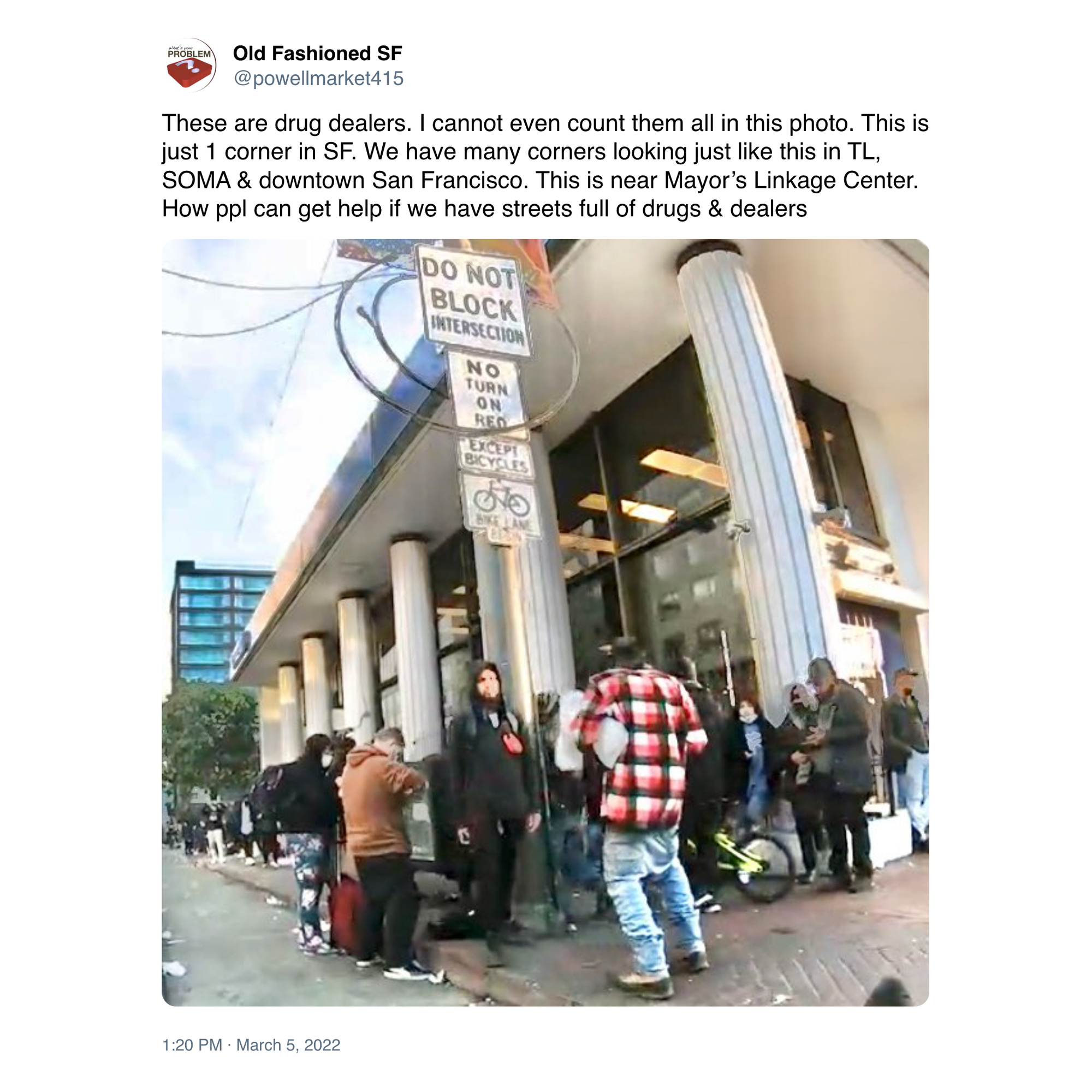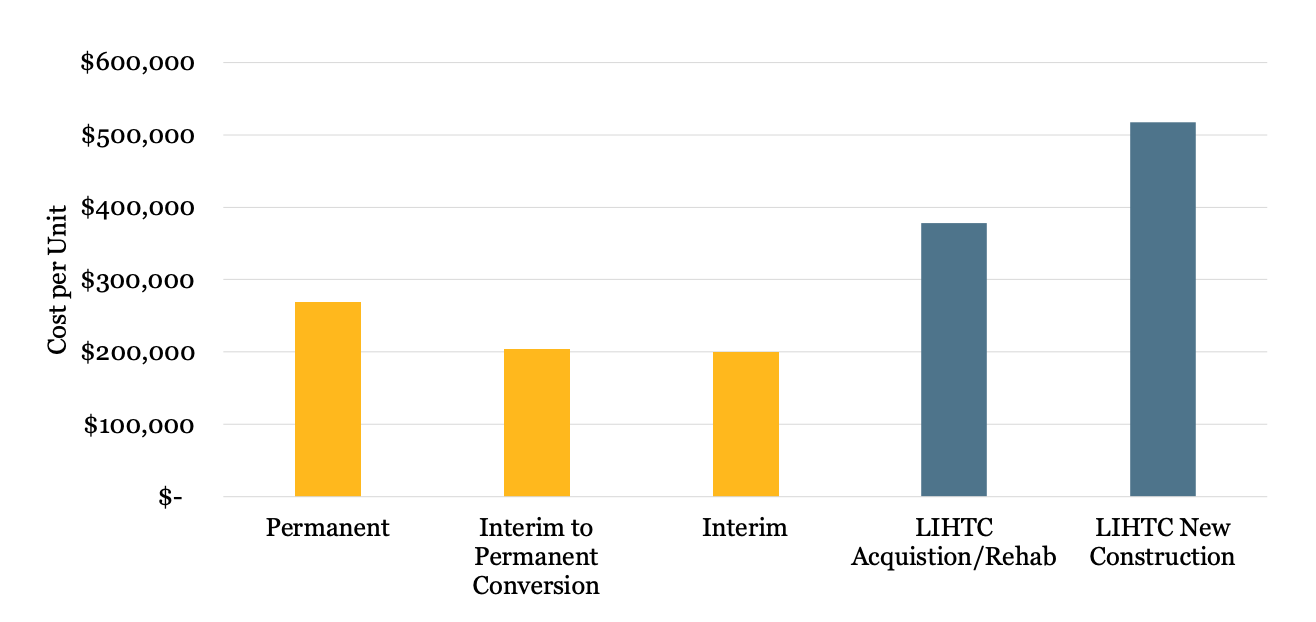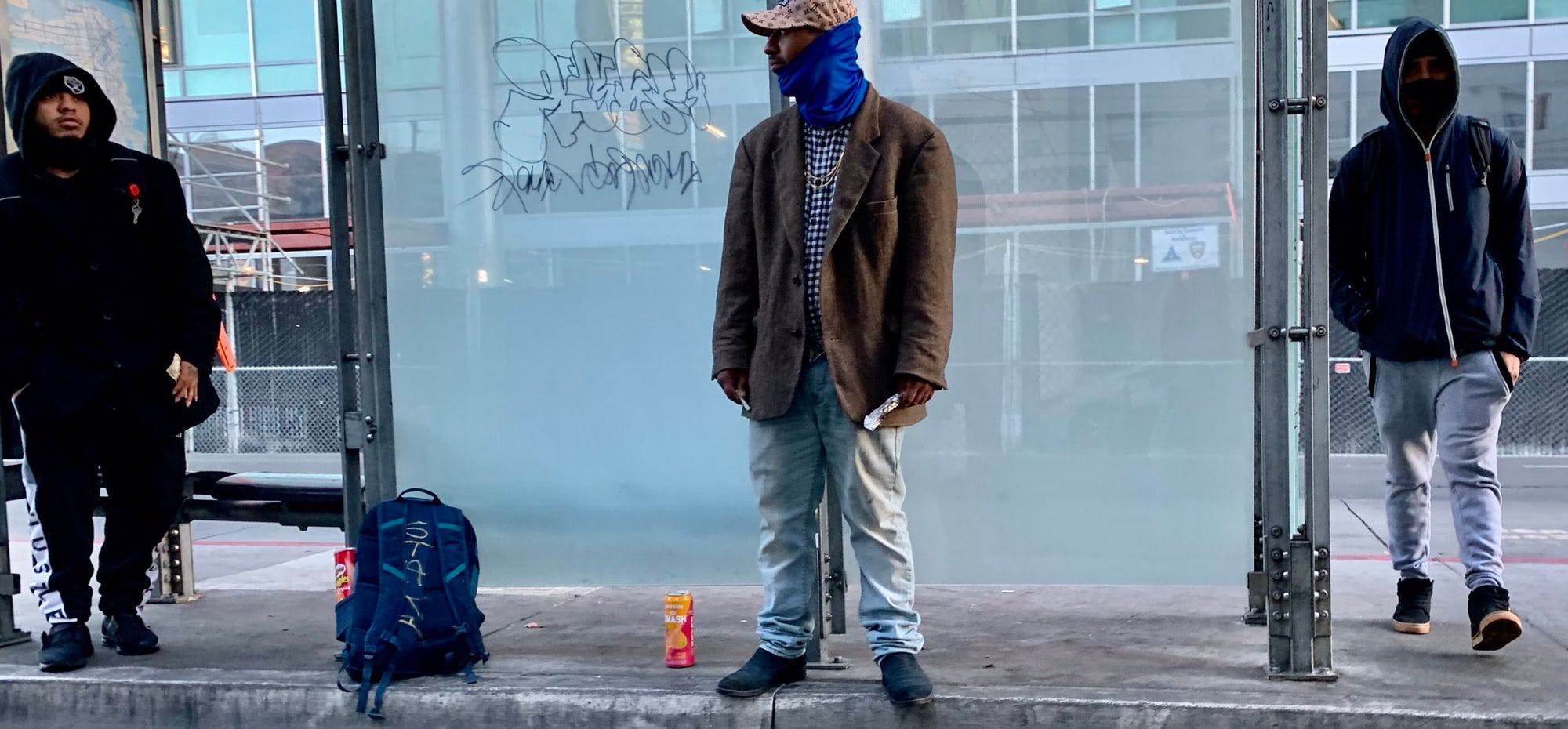San Francisco's Homeless Ticking Time BombAug 17
the majority of the city's homelessness budget goes to keeping people in no-contingency housing units, permanently. what happens when the city can't pay the bill?
Sanjana Friedman“Homekey is a once-in-a-generation opportunity to massively expand housing for the homeless in California with federal stimulus funds.” — California Governor Gavin Newsom, July 16, 2020
“Several of us actively working to get out of our [homelessness] either had to quit our jobs to get this housing or quit the housing to keep our jobs,” — Project Homekey participant, December 2022
“You had people you took off the street, literally, and you put them all in a [three]-star hotel…“you’d see the room and it was like demolished, tents in there.” — Staff member, Hotel Whitcomb, May 2022
Subscribe to Dolores Park
--
Decades ago, visitors to the Hotel Whitcomb, an eight-story luxury hotel in the heart of Downtown San Francisco, were awed by the coffered ceilings, Austrian crystal chandeliers, and Tiffany stained glass that adorned the hotel’s lobby. Today, the Whitcomb stands empty; it was shuttered and put up for sale at a steep discount by its owners last month. The news is unsurprising. Recent passersby less often marveled at the hotel’s facade than at the crowds of hooded drug dealers and slouched addicts that congregated, day and night, around its entrance. The dealers commuted to the Whitcomb from around the Bay. The addicts lived in the hotel. They tended to get high in groups out in the open, on the sidewalk, so others would be around to revive them when they overdosed. But fentanyl is unrelenting, and dozens nonetheless died inside and around the hotel before it ultimately shut its doors.

A crowd of drug dealers and users congregates outside the Whitmore Hotel on 8th and Market, March 2022 | Image: @powellmarket415
The Whitcomb took in hundreds of homeless people, many of whom were severely addicted to drugs, as part of Projects Roomkey and Homekey, two pandemic-era programs to house medically vulnerable homeless people in hotels throughout California. Together, these programs spent almost $2.8 billion on buying, leasing, and converting around 12,700 hotel rooms throughout the state into single-room occupancies between 2020 and 2022 — at an average cost of around $220,000 per unit. When the program was announced, in the early days of the pandemic, it was marketed by state officials as a “historic program to help the most vulnerable among us.” Governor Newsom righteously proclaimed to local politicians that participating in the program would be a “courageous” act of “decency,” taking “years off purgatory, anything you’ve damn done wrong in your damn lives.” But as the pandemic proceeded, the hotels were dogged by accusations of substandard living conditions from participants (“our tents were nicer than the places they stuck us,” one participant in Los Angeles told the press); mismanagement of funds by subcontractors tasked with converting hotels into single-room occupancies (SROs); lawsuits from hotel owners alleging unstable tenants trashed their properties; a string of sordid overdose deaths, and complaints from hotel staff who felt traumatized by repeatedly watching tenants die — a microcosm, in other words, of California’s exorbitant, inhumane approach to ‘solving’ its homeless crisis.

Project Roomkey's cost per unit, from UC Berkeley's 2022 evaluation of the program
Governor Newsom launched Project Roomkey in April 2020, in the early days of the pandemic, as a stopgap measure to provide temporary housing for homeless people deemed at-risk of severe cases of COVID. “By helping the most vulnerable homeless individuals off the street and into isolation, California can slow the spread of COVID-19 through homeless populations, lower the number of people infected and protect critical health care resources,” Newsom said in his announcement. Through the $2.2 trillion congressional CARES (Coronavirus Aid, Relief, and Economic Security) Act, California had secured preliminary FEMA approval for a 75% federal cost-share to fund its initial goal of securing 15,000 hotel rooms, each of which would also provide custodial, laundry, security and support staff. Certain hotels, Newsom boasted, would even provide daily meal service through celebrity chef José Andrés’s World Central Kitchen.
From the outset, FEMA made clear that its approval of cost-sharing was limited to “that which is reasonable and necessary to address the public health needs of the [pandemic]” and emphasized “[California] must obtain FEMA’s approval for any time extensions, which should include a re-assessment of the continuing need for Emergency [Non-Congregate Shelter (shelter that provides private space for occupants) (NCS)] from a State public health official, as well as a detailed justification for the continuing need for emergency NCS.”
Subscribe to Dolores Park
But state officials and homeless activists quickly began treating the federal stimulus as a golden opportunity to offset the costs of California’s then near-$3 billion a year approach to “resolving” the instability of its approximately 150,000 homeless people by attempting to provide them all not just with temporary shelter, but with indefinitely subsidized, non-sober SROs per “Housing First” principles. In July 2020, Newsom announced he was rebranding Project Roomkey as Project Homekey, “the next phase in the state’s response protecting Californians experiencing homelessness who are at high risk for serious illness from COVID-19,” and notified counties he would make $600 million in funding ($550m of which would be pulled from FEMA) available to fund “permanent, long-term housing for people experiencing or at risk of experiencing homelessness.” Since this money had to be spent by the end of 2020 or be returned to Washington (which raised the “politically horrifying prospect of returning free money to the Trump administration,” as one journalist put it), Newsom also signed legislation waiving the environmental, permitting, and zoning review housing covered under Homekey would typically require. He then embarked on a press tour to urge local officials to snap up as many hotels as they could while the state still had access to federal funds. “You can take years off purgatory, anything you’ve damn done wrong in your damn lives [by participating in Homekey]” he said over Zoom at a California State Association of Counties conference in November 2020. “Thank you for having the decency, the courage to do the right thing.”
But “the right thing,” in many cases, looked like subjecting participants to severe limitations on their freedom under living conditions so bleak that many likened the experience to jail. One woman in Southern California described how she was given one “long disposable paper towel” per day to use as a bath towel — ostensibly because laundering cloth towels increased the risk of COVID transmission. “We weren’t expecting a Holiday Inn or anything,” another man told the California Globe, bemoaning the bedbug infestation in his and neighboring rooms, “but we wanted better than a shithole.”
Participants were often allowed no guests, subject to strict curfews, not given keys to their own spaces, and only permitted to leave the site during limited hours, which complicated their ability to hold down jobs. “Where they put me in a motel was even farther away from my work. Work, which by the way, I wasn’t allowed to go to anymore because it meant giving up my job because of the curfew,” a Roomkey participant who worked the night shift at a convenience store told the Globe. “Several of us actively working to get out of our [homelessness] either had to quit our jobs to get this housing or quit the housing to keep our jobs.”
Elsewhere, Roomkey/Homekey sparked costly lawsuits both from residents who opposed efforts to turn local hotels into permanent homeless housing, and from hotel owners who leased their properties to the program and discovered tenants had trashed them. In Milpitas, where state and county officials pushed through a $29.2 million project to turn an Extended Stay America into permanent supportive housing without consulting the local government, residents filed a lawsuit to stop the development. The suit failed, and two years later, the converted hotel became a hotbed of criminal activity where calls to police more than doubled. In April 2021, for example, a woman was stabbed to death by her boyfriend in their room on the site.
In Los Angeles, real estate developer Shangri-La Industries, which received over $114 million in Homekey funding to convert seven motels, was sued by lenders alleging four of these projects were unfinished and the other three were barely occupied. “In effect, Shangri-La is operating a real estate Ponzi scheme,” the court filing reads, “where loans that were supposed to be reserved to complete specific [Homekey] projects were commingled with other funds and entities to prop-up other failing Shangri-La projects.
Back in San Francisco, where around $385 million in Roomkey funding helped the city lease thousands of rooms at upscale hotels for homeless people, dozens of hotel owners sued the city for damages wrought by unstable tenants and won over $44.5 million in collective settlements. The Whitcomb received around $20 million (one-third of the building’s assessed value) for water damage, “unspecified damage to rooms,” and fumigation, among other expenses. Elsewhere, the city paid $2.9 million to the three-star Tilden Hotel, $5.3 million to the three-star Hotel Union Square, and $3.8 million to the two-point-five-star Good Hotel on similar damage charges. Staff at The Whitcomb, interviewed by KQED, described how many homeless people placed in the hotels were utterly unequipped for the isolation the program foisted upon them. “You had people you took off the street, literally, and you put them all in a [three]-star hotel,” one employee said, “you’d see the room and it was like demolished, tents in there.”
But worse than the property damage was the overdose crisis that dogged Homekey. As one housing director in Fresno put it, the sites were “strictly Housing First. There is no screening whatsoever. We take you exactly where you are at that particular moment.” And in that particular moment, many Roomkey/Homekey participants were in the throes of severe addiction problems which would be exacerbated — often fatally — by closed doors, isolation, and “sheltering in place.” At least 18 people (of around 400 total residents) fatally overdosed between April 2020 and April 2022 in the Whitcomb alone, though staff say they had to use Narcan at least 1,000 times to respond to overdoses in general. Many employees, traumatized by repeatedly responding to overdoses, sought counseling. But when they applied for funding from the Department of Homelessness and Supportive Housing to offset the costs, the agency denied their request.
In total, almost 50 people fatally overdosed in Los Angeles’ Roomkey hotels, while at least 109 people fatally overdosed in those in San Francisco. (On the other hand, during the first year of the pandemic, no homeless deaths in San Francisco were attributed to COVID-19.)

"[H]ere are the Three Pendejos running a well-stocked drug mart from a bus stop at the corner of 8th and Market, directly outside the alley that leads to the entrance of the Whitcomb Hotel...," tweets @EsmeAlaki in October, 2020
Many California officials would doubtlessly like to write Roomkey and Homekey off as something out of a bad dream. But the federal government is making this difficult. After FEMA announced it would not reimburse hotel stays of over 20 days between June 2021 and May 2023, reports have emerged that cities and counties across the state may be on the hook for upwards of $300 million in combined Roomkey and Homekey bills. San Francisco alone will have to pay at least $114 million, though Controller Ben Rosenfield estimates the city’s tab could soar to $190 million if FEMA also refuses to reimburse costs associated with a local initiative to stockpile vacant hotel rooms with PPE.
Though well-aware that this is a justified response to their attempt to covertly offset the costs of “Housing First” onto Washington, state officials have still feigned shock at FEMA. “The message is that we can’t count on our federal government to be accountable for promises that have been made and money that was spent in reliance on those promises,” said one politician in Santa Clara County. “It’s indefensible.”
Not even this embarrassment, coupled with the state’s unprecedented (and growing) $73 billion budget deficit, seems likely to dissuade California from continuing to attempt to “solve” its homeless problem through Housing First. In the upcoming March primary, Newsom will ask voters to approve Proposition 1, a ballot measure which seeks another $6.4 billion in funding to build a few thousand treatment beds and permanent supportive housing units. “There’s one proposition on the March 5th ballot to get Californians with mental health needs off the streets and into housing,” Newsom says in a recent ad for the measure. But if Roomkey and Homekey have taught us anything, it’s that getting people off the streets is only a first step, not a solution.
— Sanjana Friedman
Subscribe to Dolores Park
0 free articles left